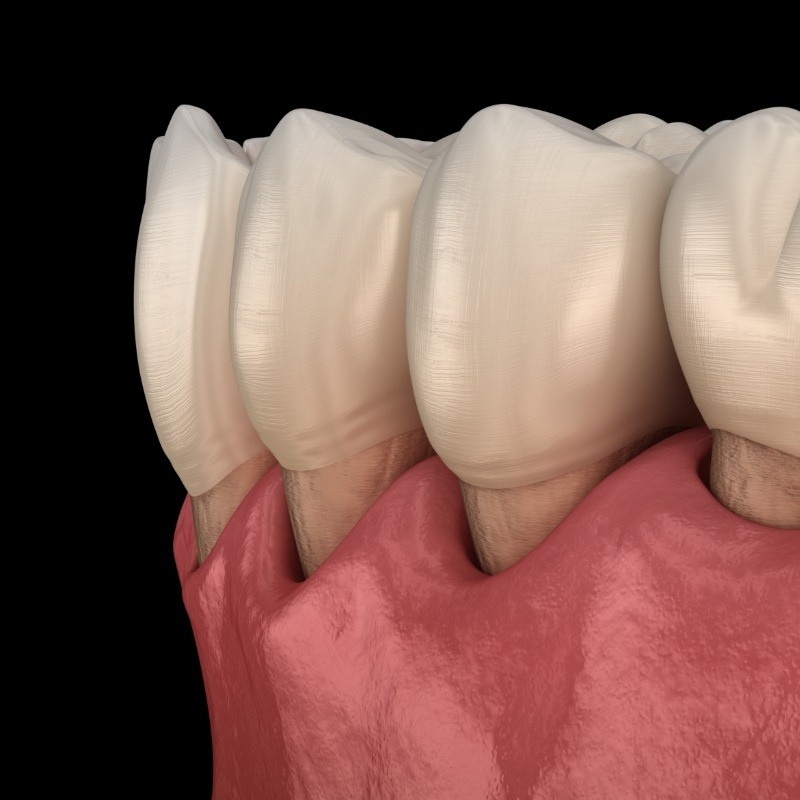Dental Care for Eating Disorders – Boston, MA
A New Start Through Dentistry
Behaviors associated with eating disorders, binge eating, and anorexia can lead to significant dental issues, including tooth sensitivity, decay, gum disease, and enamel erosion. These effects can manifest within just one to two years.
At Dental Health & Wellness Boston, we are here to support you. We offer a compassionate and discrete approach, crafting personalized treatment plans to protect and restore your dental health from the impact of eating disorders. If you or a loved one are grappling with the challenges of an eating disorder, we encourage you to reach out to us for dedicated care and guidance.
Why Choose Dental Health & Wellness Boston for Dental Care for Eating Disorders?
- Dental Care Designed to Meet a Patient’s Unique Needs
- Friendly, Non-Judgmental Dental Office
- Able to Reverse the Dental Damage Caused by Eating Disorders
How We Can Help

Many others have felt the discomfort or shame that makes the first visit a difficult beginning. Dr. Jill Smith and her team at Dental Health and Wellness Boston have years of experience and are here to help you. Our membership in the Multi-Service Eating Disorders Association (MEDA) has allowed Dr. Smith to change people’s lives by increasing their confidence and self-esteem. Let us change your life too!
“Dr. Smith gave me back my smile. She did more for me than fix my teeth, she helped me find the courage to heal my past and embrace my new, healthier lifestyle.” ~ Anne
Dental Health and Wellness Boston Provides:

- Personalized Treatment Plans: Every person is different. We develop unique treatment plans that fit your lifestyle and schedule.
- Access to Experienced Staff: Our team of dental professionals has many years of experience treating patients with Eating Disorders and Anorexia.
- Professional Referrals: If needed, we can refer you to Boston’s best mental health professionals that specialize in eating disorders.
- Respect and Privacy: Eating disorders create emotional conflicts. We have the highest level of respect for your privacy.
Understanding Eating Disorder’s Effects on Oral Health

The severity of dental problems induced by eating disorders decreases with good oral hygiene habits and increases with the frequency and degree of vomiting. Common symptoms of eating disorders that are detected in routine dental examinations include:
- Tooth Erosion: Teeth affected by eating disorders will have a smooth glassy appearance void of stains or lines. If the back teeth are affected there is often a loss of the biting surfaces of these teeth and they become highly susceptible to decay and more serious infections of the nerves within these teeth. Stages of advanced tooth erosion can lead to damage in the root of the tooth as well as eventual temperature sensitivity.
- Dry Mouth: Dry mouth is known as xerostomia, and it is an uncomfortable condition that can be caused by several factors associated with eating disorders, including abuse of laxatives, diuretics, and dehydration from fasting and vomiting. Dry Mouth is indicated by a decrease in the production of saliva.
- Dental Problems Resulting from Decreased Saliva Production: Lack of saliva leads to gum disease, tooth decay, and an uncomfortable condition called burning mouth syndrome. Saliva cleans the mouth constantly. As it circulates through the mouth, it clears food debris that may act as a food supply for the bacteria in plaque. Therefore, with dry mouth, the decreased levels of saliva make way for increased bacterial infection, which can lead to a host of dental problems. Saliva also reduces the pH (acidity) of dental plaque waste products, which helps limit tooth decay induced by the plaque.
- Visible Symptoms: Tissues in the mouth can become irritated and traumatized by eating disorders. Symptoms such as redness of the throat and roof of the mouth (palate), reddened cracked lips, and enlarged parotid salivary glands are often observed.
A New Beginning

For so many just like you, restoration of your teeth with Dr. Smith at Dental Health & Wellness Boston symbolizes so much more than replacing lost tooth structure. Your new smile represents to you and the world a healthy start on your path to healing.

